Titanium Nut Manufacturer and Supplier In China
As a Chinese titanium nut manufacturer, Wstitanium has established a good brand image and market reputation in the field of titanium nut manufacturing with its rich product types, advanced manufacturing processes, diverse titanium grade selection, surface treatment technology and wide range of applications.
- 24/7 Online Service
- OEM/ODM Support
- DIN、GB、ANSI、ISO、JIS
- SGS, BV and CE Certificates
- M3 – M48
- 8000 Tons Capacity
- 10+ Finishing Options
- 15+ Titanium Grade Options
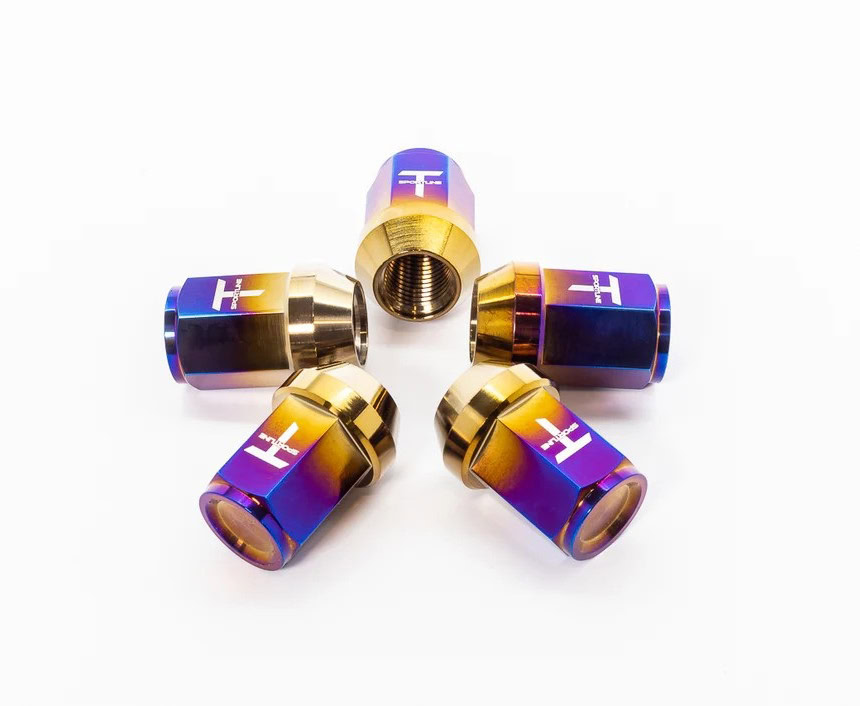
Reputable Titanium Nuts Factory - Wstitanium
As a key fastener, titanium nuts play an indispensable role with their unique performance advantages. Titanium nuts are widely used in aerospace, medical, chemical, marine engineering and many other fields due to their excellent corrosion resistance, high strength, low density and good biocompatibility. Wstitanium covers many common types such as hexagonal titanium nuts, square titanium nuts, round titanium nuts, countersunk titanium nuts, self-locking titanium nuts, etc. At the same time, we can also customize and manufacture various special types of titanium nuts according to your special needs, meeting the diverse needs of different application scenarios.
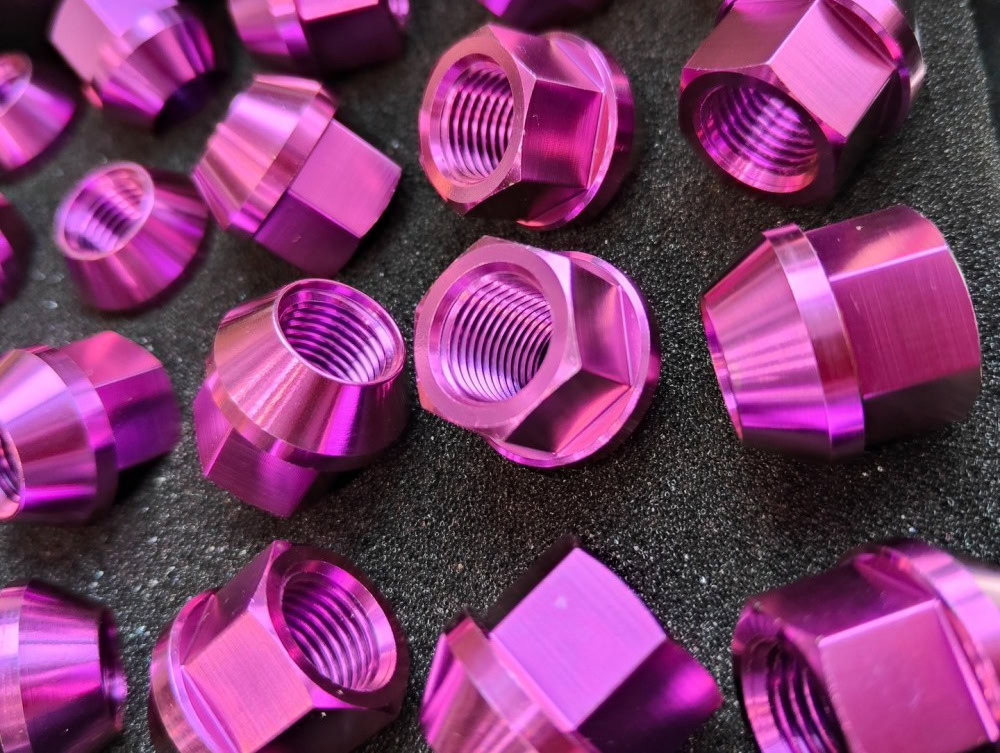
Anodized Titanium Nuts
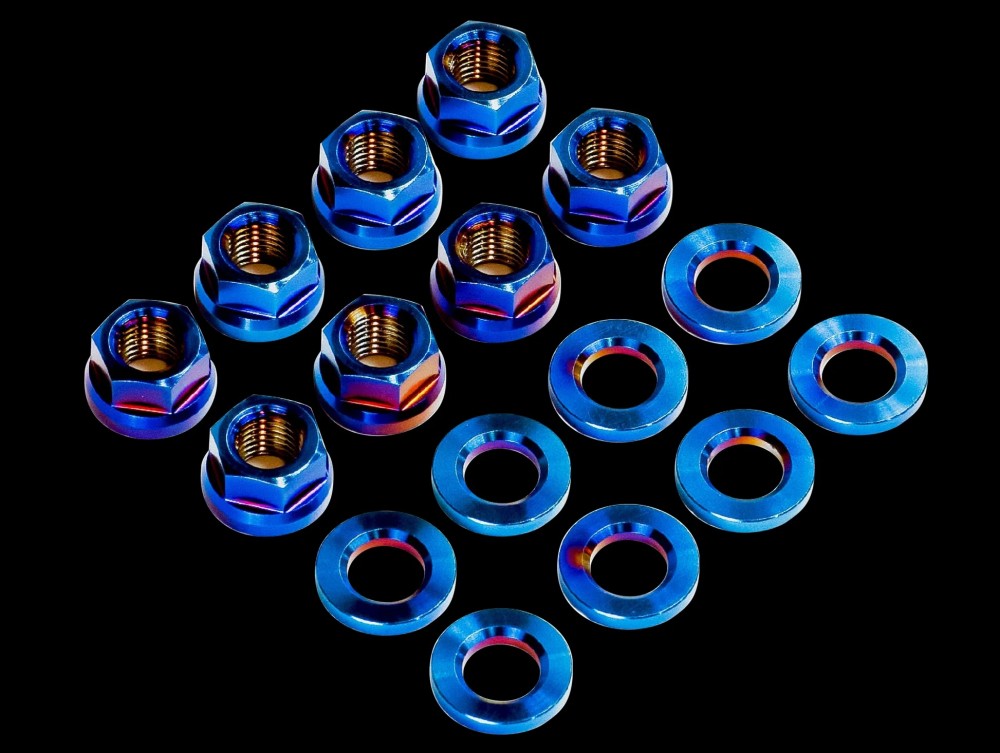
Micro-arc Oxidation Titanium Nut
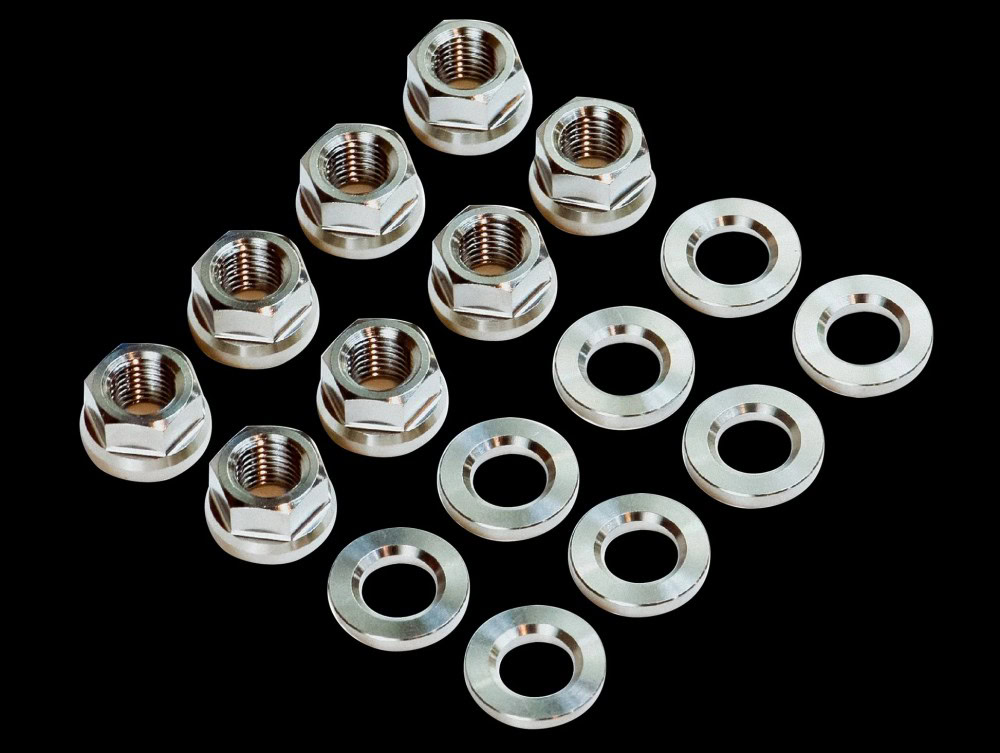
Nickel-plated Titanium Nuts
Titanium Nuts Design
In the design of titanium nuts, there are a series of international standards and specifications, such as ISO standards (International Organization for Standardization), ASME standards (American Society of Mechanical Engineers), etc. These standards have detailed provisions on the size, tolerance, mechanical properties, material requirements, etc. of titanium nuts, providing a unified basis for the design and manufacture of titanium nuts.
Application Environment
The use environment of titanium nuts is an important consideration in design and selection. Different use environments have different performance requirements for titanium nuts. For example, in the field of aerospace, environmental factors such as high temperature, high pressure, vacuum, and strong radiation need to be considered. In the field of marine engineering, it is necessary to consider the corrosion of seawater and the complex conditions of the marine environment. Select the appropriate titanium alloy grade and surface treatment process according to the use environment to ensure the performance and service life of the titanium nut.
Loading
When designing titanium nuts, it is necessary to consider the load conditions it bears, including static loads, dynamic loads, alternating loads, etc. According to the size and nature of the load, determine the size, shape and material of the titanium nut to ensure that it can withstand the corresponding load without deformation, fracture and other failure phenomena. For example, in situations where large tensile forces are applied, it is necessary to select titanium alloys with higher strength and suitable nut structures; in situations where alternating loads are applied, it is necessary to consider the fatigue performance of titanium nuts.
Matching
Titanium nuts usually match bolts or other connectors in terms of thread accuracy, matching clearance, tightening torque, etc. Select appropriate thread specifications and accuracy grades to ensure that the titanium nut and bolt can fit tightly. At the same time, the size of the tightening torque needs to be considered. Excessive tightening torque may cause damage to the titanium nut or bolt, while too small tightening torque may cause a loose connection.
Installation and Removal
When designing titanium nuts, it is also necessary to consider the convenience of their installation and removal. Reasonable design can improve the efficiency of installation and removal and reduce labor intensity. For example, choose the appropriate nut shape and size to make it easy to operate with tools; in some special occasions, special nut structures can be designed, such as self-locking nuts, anti-loosening nuts, etc., to prevent the nuts from loosening during use.
Common Titanium Nut Types
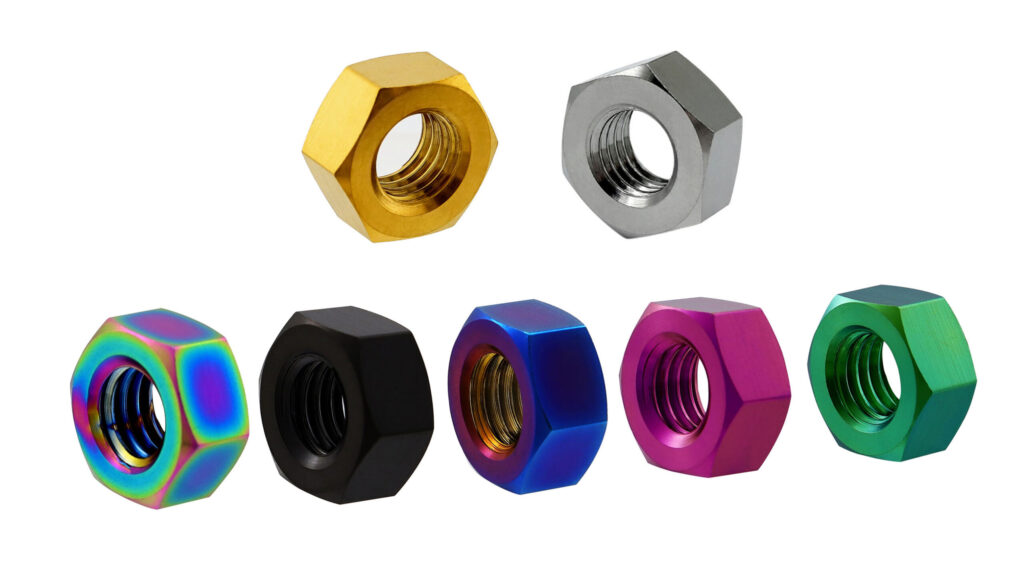
Hexagonal Titanium Nut
The shape of the hexagonal nut is a regular hexagon, which is convenient for wrench tightening and disassembly. It has high strength and stability and is widely used in various fields such as machinery and structural parts. Hexagonal nuts can be divided into ordinary hexagonal nuts, thin hexagonal nuts, thick hexagonal nuts and other types.
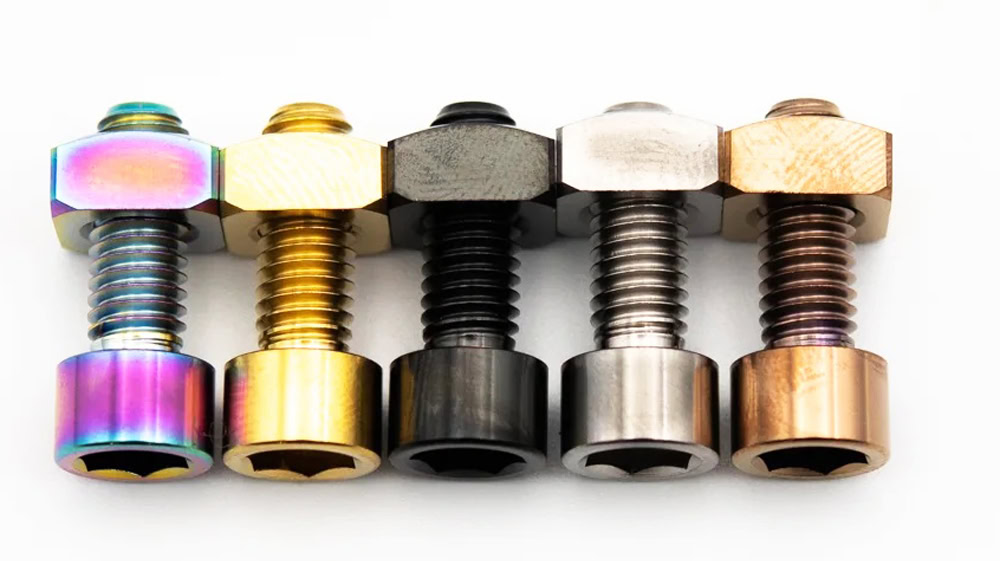
Square Titanium Nut
The shape of the square nut is square, which is characterized by strong torque transmission ability and is suitable for some occasions where the wrench operation space is not high. The size of the square nut is relatively large and is generally used for larger bolt applications, such as building structures, mechanical equipment, etc.
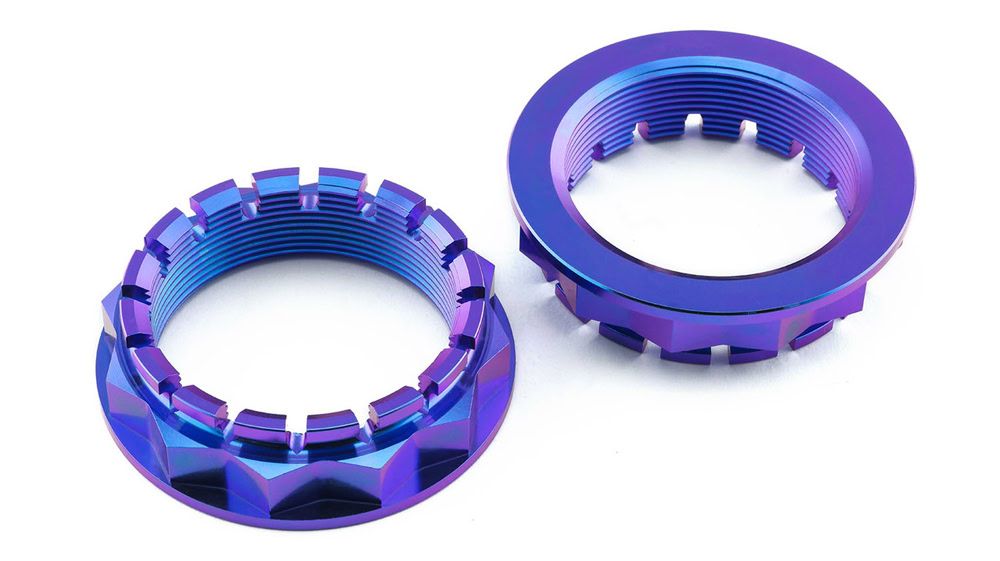
Round Titanium Nut
The shape of the round nut is round, usually with a locking washer or other anti-loosening device to prevent the nut from loosening. Round nuts are often used for axial fixation of shaft parts, such as in motors, reducers and other equipment, to fix parts on the shaft.
In addition to common titanium nut types, Wstitanium is also able to customize and manufacture various special types of titanium nuts according to your special needs. For example, in some special industrial equipment, titanium nuts with non-standard sizes, special thread specifications or special functions may be required. With its strong manufacturing capabilities, Wstitanium can meet your personalized needs and provide customized solutions.
Manufacturing Titanium Nuts
Wstitanium is well aware of the importance of raw material quality to the performance of titanium nuts, so it is extremely strict in the selection of raw materials. High-quality titanium ingots or titanium rods are used as raw materials to ensure that their chemical composition and mechanical properties meet the requirements. After determining the raw materials, Wstitanium will process the blanks according to the shape and size requirements of the titanium nuts, including forging, rolling and cutting. The forging process can improve the organizational structure of the titanium alloy, improve its mechanical properties, and make the blanks more dense and uniform. Rolling can obtain titanium rods with certain dimensional accuracy and surface quality. The cutting process is used to process the blanks into the required length and shape for further forming operations.
Cold Heading
Cold heading is one of the common processes used by Wstitanium to manufacture titanium nuts. Pressure is applied to the titanium blank through the die to cause it to undergo plastic deformation, thereby obtaining a titanium nut of the desired shape. Cold heading has the advantages of high production efficiency, low cost, and high dimensional accuracy, which can ensure the consistency of titanium nuts. Wstitanium has advanced cold heading equipment and high-precision molds, which can produce titanium nuts of various specifications and shapes. During the cold heading process, the accuracy and lubrication conditions of the mold are strictly controlled to prevent cracks and defects on the surface of the titanium nut. At the same time, according to the characteristics of the titanium alloy, the cold heading pressure and speed are reasonably adjusted to ensure the smooth progress of the forming process.
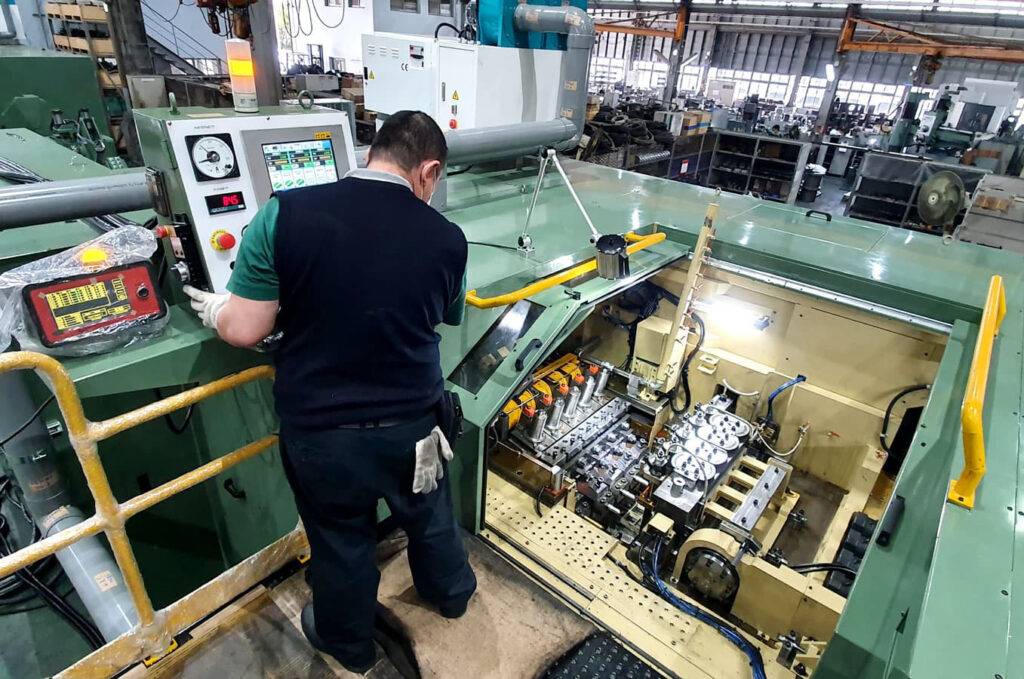
Hot upsetting
For some titanium nuts with complex shapes, large sizes or high deformation resistance, Wstitanium will use hot upsetting technology. Hot upsetting refers to heating the titanium blank to a certain temperature and then upsetting it. Heating can reduce the deformation resistance of titanium alloys, improve their plasticity, and make the forming process easier. Wstitanium ensures that the hot-upset titanium nuts have good organizational structure and mechanical properties by precisely controlling process parameters such as heating temperature, time and cooling rate. The temperature of hot upsetting is generally between 800℃ and 1000℃, and the specific temperature will be adjusted according to the grade of titanium alloy and the forming process requirements. After hot upsetting, the titanium nuts also need to be properly heat treated to eliminate processing stress and further improve their performance.
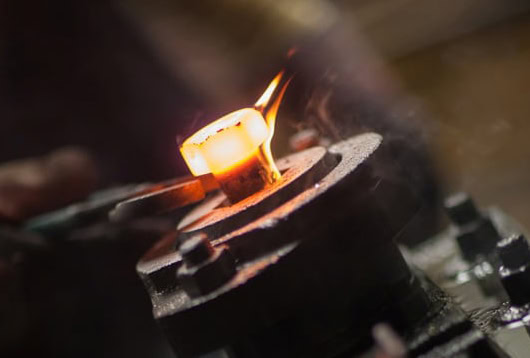
For titanium nuts with high precision requirements or special shapes, Wstitanium will use CNC processing, including turning, milling, drilling, tapping, etc. By using advanced CNC machine tools and high-precision tools, Wstitanium can accurately process the various sizes and shapes of titanium nuts to ensure their accuracy and surface quality. CNC turning has relatively low efficiency and high cost, but it can meet the manufacturing of titanium nuts with some special needs, such as customized titanium nuts with extremely high precision requirements in the aerospace field.
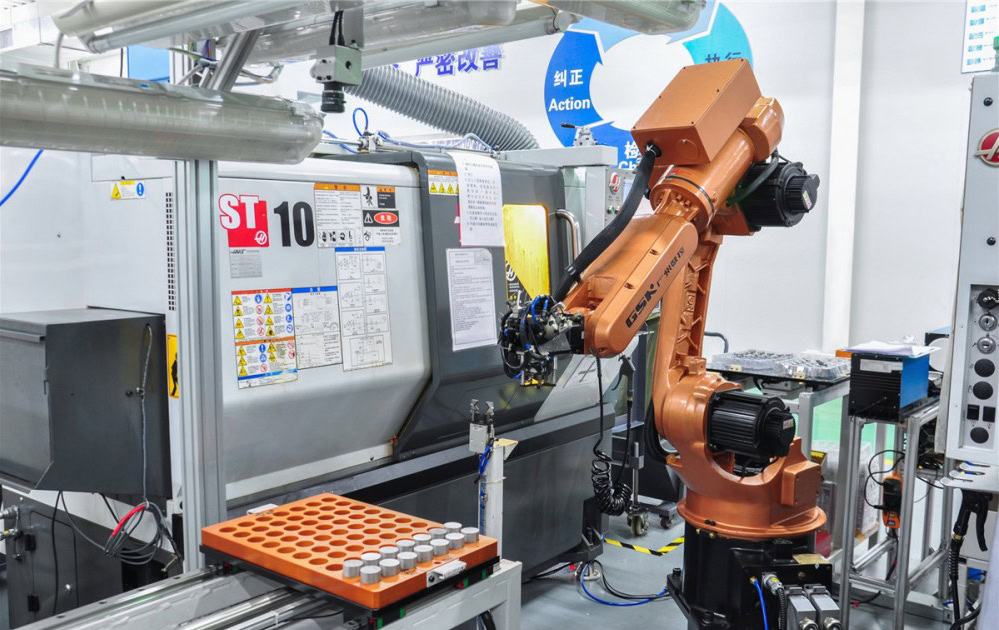
Heat Treatment
During the manufacturing process of titanium nuts, due to the processing technology, certain internal stress will be generated, which may affect the performance and service life of titanium nuts. Therefore, Wstitanium will perform stress relief annealing on titanium nuts. Stress relief annealing is to heat the titanium nuts to a lower temperature (generally between 400℃ – 500℃), keep them warm for a certain period of time, and then slowly cool them to eliminate internal stress. Through stress relief annealing, Wstitanium can improve the dimensional stability and fatigue resistance of titanium nuts, ensuring their reliability during use.
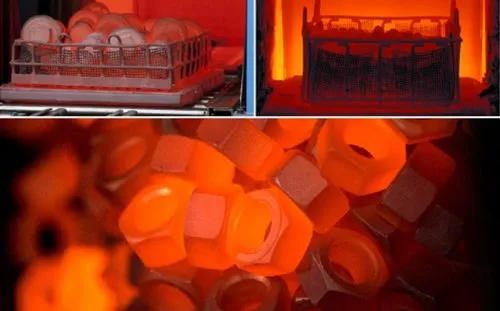
Wstitanium Manufactures Titanium Grades For Nuts
The diversity of titanium nut grades is a major advantage of Wstitanium. Industrial pure titanium grades such as Gr1, Gr2, Gr3, Gr5, Gr6, Gr23, Ti-10v-2Fe-3AL, etc. Different grades have different performance characteristics, allowing Wstitanium to select the most suitable material to manufacture titanium nuts according to different application fields and customer needs.
Gr1
Titanium nuts made of pure titanium Gr1 have good corrosion resistance and plasticity. Gr1 has a higher purity and lower impurity content, and is suitable for occasions with low strength requirements but high corrosion resistance requirements. Gr1 titanium nuts can maintain stable performance in mild corrosive environments, and its good plasticity can meet the basic needs of titanium nuts in these fields.
Gr2
Gr2 is also one of the industrial pure titanium grades commonly used by Wstitanium. Compared with Gr1, Gr2 has a slightly higher strength, but its corrosion resistance is still excellent. In some corrosion-resistant applications that require a certain strength, such as seawater desalination equipment, marine monitoring equipment, etc. Wstitanium ensures the quality and performance of Gr2 titanium nuts.
Gr3
Titanium nuts made of industrial pure titanium Gr3 have relatively high strength and hardness. Although its corrosion resistance is slightly lower than Gr1 and Gr2, it is used in some occasions where the strength requirements are high and the corrosion environment is relatively less harsh, such as some ordinary industrial pipeline connections, non-critical parts of mechanical equipment, etc.
Gr5 (Ti-6Al-4V)
Gr5 is the most widely used titanium alloy of Wstitanium. In the aerospace field, Gr5 titanium nuts are used for the connection of key parts such as aircraft engines and fuselage structures. It is also used for the fastening of components such as automobile engines and suspension systems. Gr5 is also used to manufacture connection parts for orthopedic implants.
Gr6 (Ti-5Al-2.5Sn)
Gr6 is an α-type titanium alloy with good high-temperature strength and oxidation resistance. In equipment that needs to work in high temperature environments, such as the connection of high temperature components of aircraft engines and the connection of pipelines in industrial furnaces, Gr6 titanium nuts can maintain stable performance and ensure the reliability of connections.
TB6 (Ti - 10V - 2Fe - 3Al)
TB6 is a β-type titanium alloy. Wstitanium’s TB6 titanium nuts have high strength and are used in fasteners for aircraft landing gears, key connection parts of high-end mechanical equipment, etc. Through reasonable heat treatment processes, TB6 titanium nuts can obtain ideal mechanical properties and provide reliable solutions for high-end applications.
Finishing For Titanium Nuts
Lorem ipsum dolor sit amet, consectetur adipiscing elit. Ut elit tellus, luctus nec ullamcorper mattis, pulvinar dapibus leo.
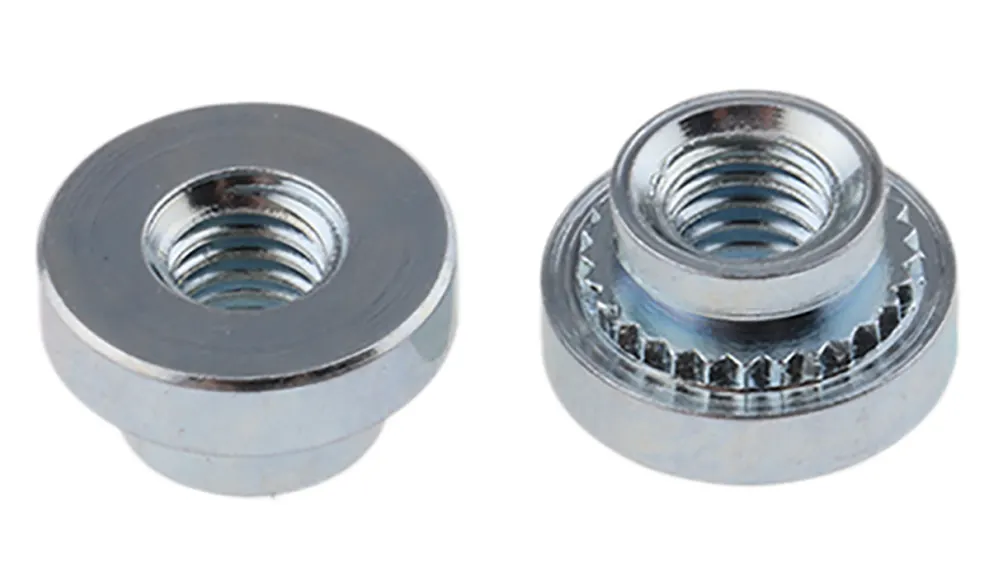
Passivation
Passivation treatment is to immerse the titanium nut in a specific chemical solution to form a dense oxide film on the surface of the titanium nut, which can effectively block the invasion of external corrosive media and extend its service life.
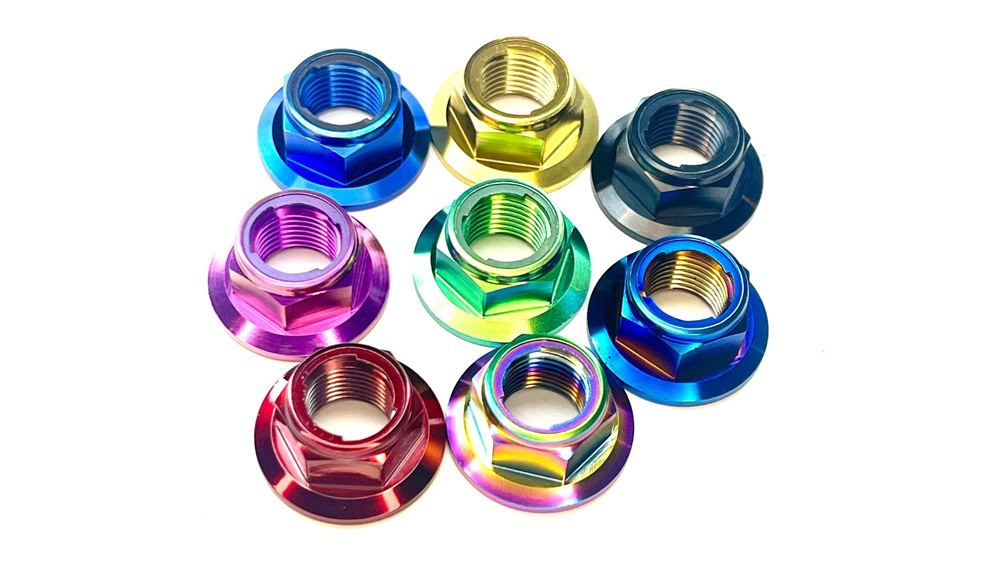
Anodizing
Anodizing is an important surface treatment process for Wstitanium to give titanium nuts a variety of properties and appearances. The thickness and color of the oxide film are controlled according to customer needs.
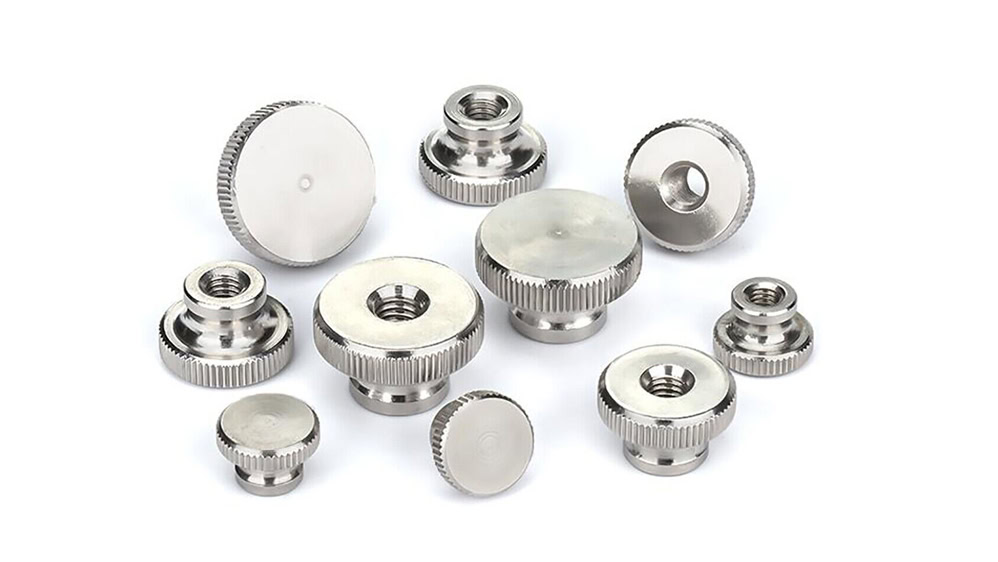
Coating
Coating a special coating on the surface of the titanium nut, such as organic coating, metal coating, metal coating (such as nickel plating, chrome plating, etc.) can improve the hardness and wear resistance of the titanium nut.
Titanium Nut Application
Wstitanium manufactures titanium nuts with its excellent performance in many aspects, providing reliable and efficient connection solutions for various industries.
Fix artificial joint replacement and promote healing. Connect implant base and crown to adapt to the oral environment. In medical equipment, it is used for the connection and fixation of surgical instruments, equipment housings and medical monitoring and treatment instruments.
Chemical industry
In reactors and containers, connect components to resist strong corrosive media, ensure stable operation of equipment under high temperature and high pressure, and prevent leakage. In heat exchangers, connect components to prevent corrosion and scaling.
Marine
On offshore oil platforms, connect steel structures to resist seawater corrosion and extend platform life. In shipbuilding, withstand high-speed torque to ensure control performance, and also used for deck and cabin equipment installation.
In engine systems, suspension and brake systems, withstand impact and vibration. Self-locking titanium nuts ensure brake safety. Improve quality and durability, and add beauty.
Electronics
Adapt to complex industrial environments, ensure stable operation of equipment, high-precision processing to meet connection accuracy requirements, and have good electromagnetic compatibility.